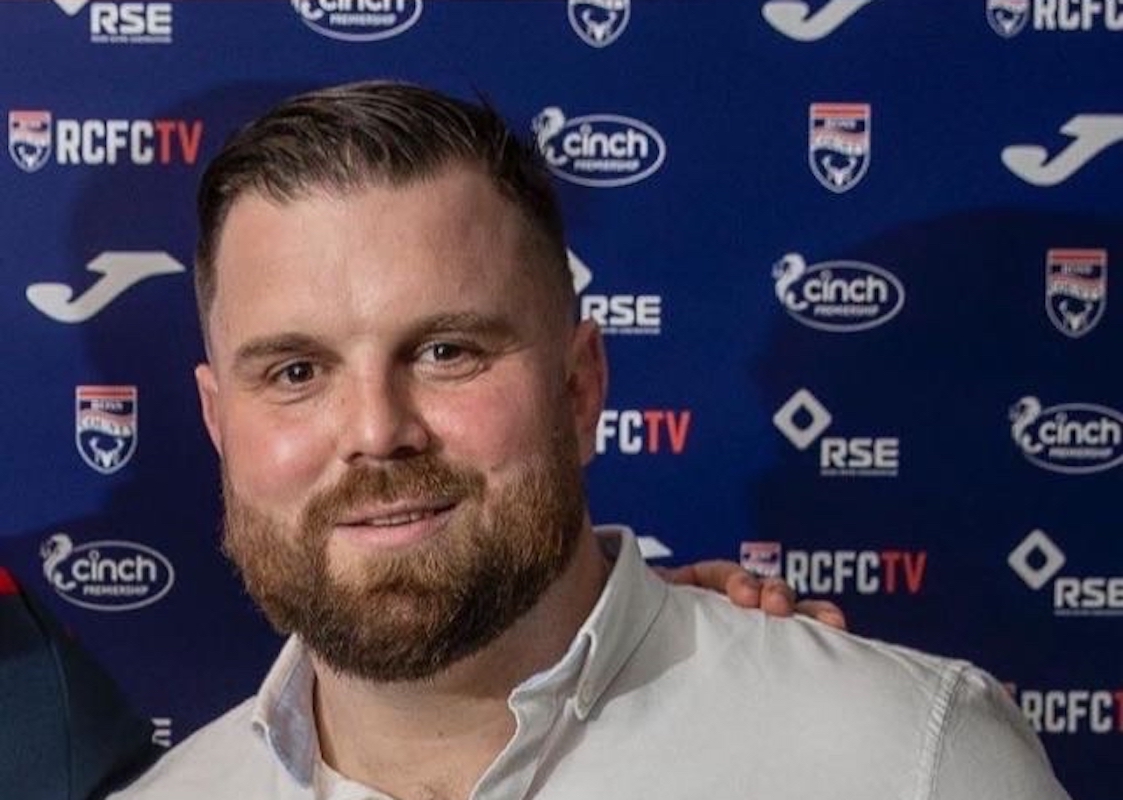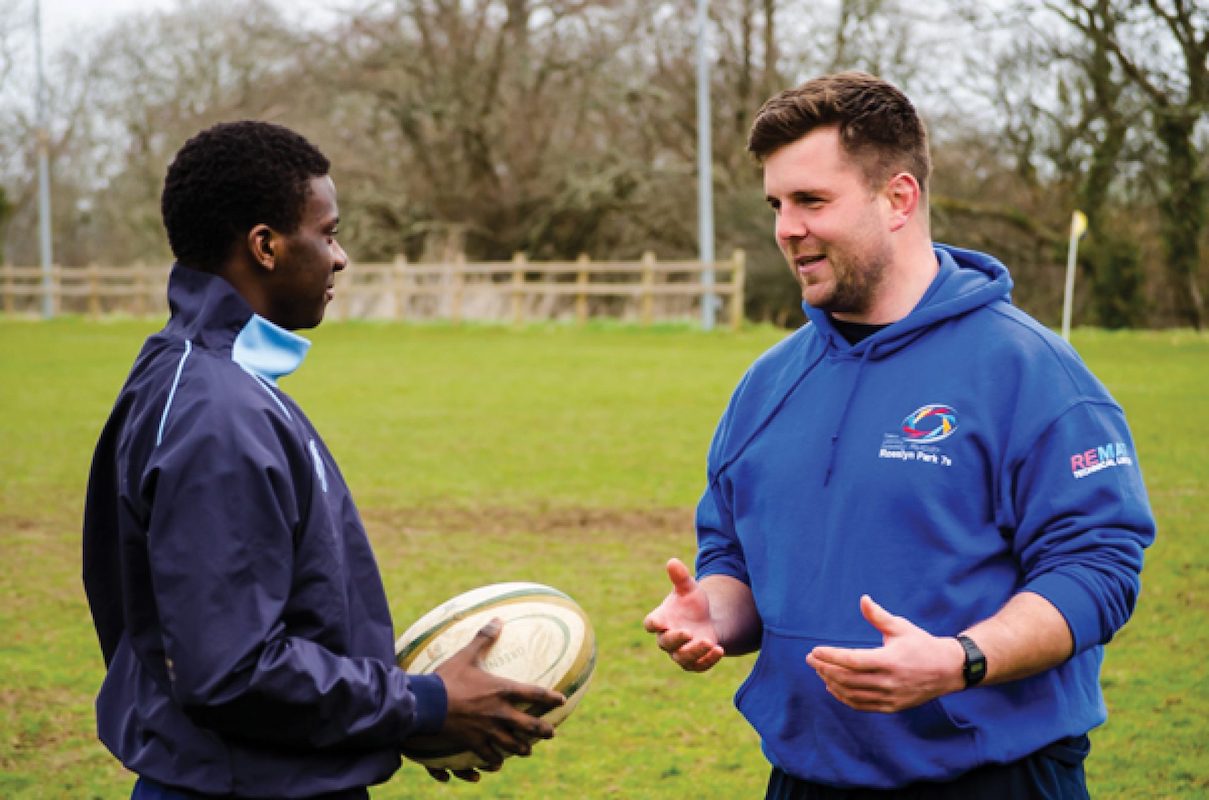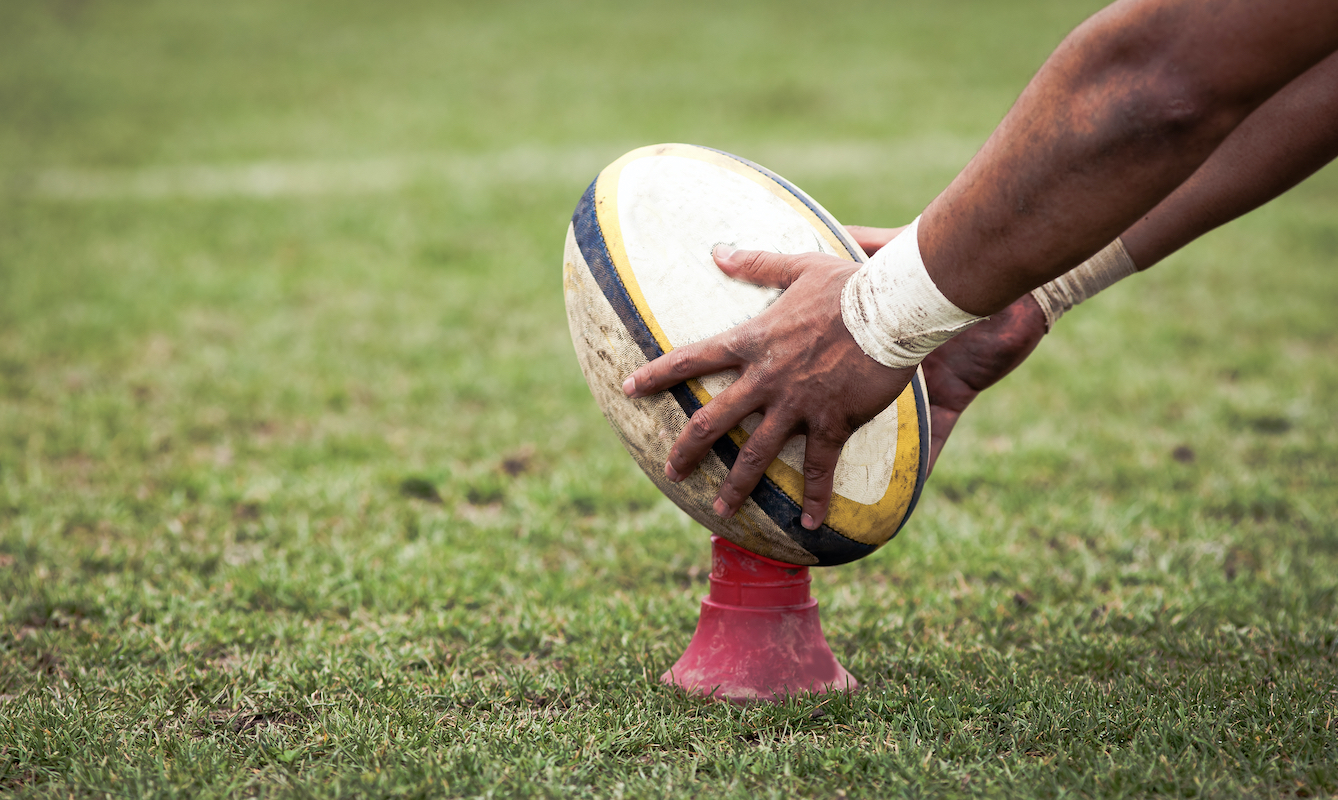This website uses cookies so that we can provide you with the best user experience possible. Cookie information is stored in your browser and performs functions such as recognising you when you return to our website and helping our team to understand which sections of the website you find most interesting and useful.
LEADER COLUMN: Matt Leek on the future of rugby
By Matt Leek | 5 January 2023 | Sport
Former rugby player and founder of Parmenion Sports Management Matt Leek on how a new wellness-focused approach is changing the game for ever

Professional rugby needs to change. It needed to change pre-Covid-19 and it certainly does now. It’s difficult to explain the unique pressures that players face at such a high level. I definitely struggled with that as a young academy player, and it’s inspired my approach to teaching, training and mentoring ever since.
Sport can be a strange environment, especially when you think about young players who are transitioning from, effectively, a school hobby to a professional career, just as they are turning 18. It’s no wonder that major transitions – from joining new teams to leaving sport for good – can also be difficult later on.
Although rugby is still seen as a very middle-class sport, we have players from all backgrounds and life experiences. They have different personal pressures and, as the games becomes more diverse and inclusive, we want to ensure that all our players are supported throughout their lives and be really personalised to their experiences and our approaches to supporting them.

In 2018, a study showed that 62% of rugby players experience mental health issues, and almost 50% experience financial struggles within five years of retirement. I saw this in my previous role with the Rugby Players Association, where I introduced the Mental Health First Aid (England) course into clubs across the premiership. In an environment where a lot of high-performance rugby players, club and off field leadership staff alike, can really benefit from sharing that kind of good practice and experiences with each other.
The inspiration behind my company, Parmenion Sports Management, was to create a very holistic, player-centred agency that doesn’t just support our clients’ current interests, but supports their career goals and future after rugby, through a range of mentoring schemes. We currently manage about 12 players, both men and women, and plan to grow slowly. Part of my approach is to work out who my clients are as people, not just as sportsmen and women. What are they good at? What do they enjoy? Are they an extrovert or an introvert?
The value of integrating wellness into management is huge; a proactive rather than a reactive to the needs of our players, we want to try and build good habits within the sport, so that everyone has those tools ready for their mental wellbeing, whenever they need it.

I had a state school upbringing before winning a scholarship at an independent rugby school. Later, I moved on to play for the academies at Worcester Rugby Club and then the Dragons, while spending a series of short-term loans in the Welsh leagues when I was about 19 years old.
At the time I left Worcester, I didn’t have any plans for my future beyond being a professional rugby player, but the brilliant lifestyle support officer Alun Davies encouraged me to think about my future outside of the sport. He helped me apply to university so, when I was ultimately released from the premiership at the end of my second year, I was able to develop other options.
For nearly 10 years I was a teacher, working with children from some non-traditional backgrounds as well as setting up a rugby programme across Bristol – some of the students I taught are now professional rugby players, such as England’s Ellis Genge, Mitch Eadie, Nathan Chamberlain, Tom Sims and Ed Harvey.
The programme wasn’t just for those players at a top level of rugby but offered holistic support for players to support them in their future careers – both within the sport and after it. We wanted to give our players a sense of belonging, raise aspirations and develop their identity and this is what led me to work with the RPA, looking after the players’ wellbeing and, eventually, to establish Parmenion Sports Management.

Another way we’re trying to transform the game is through an app-based sports market, Pella Pro. It connects clubs and players – professional and aspiring – so that communication and contact becomes easier and more organic. It doesn’t replace sports agents but is designed to provide extra support, that extra safety net, while opening up the worldwide market.
We have a virtual coach, a benefits area, and opportunities for players to speak to other players and get really valuable advice on subjects from finances to relocation to grief support.
Rugby is a very young professional sport, really – it was officially established in 1995 – and so I feel that we need to be more open to change. For example, there are many clubs suffering in current economic climate and so we shouldn’t be afraid to tweak the model if it helps us support clubs and players and move the game forward. There’s a lot of information around safety that we can communicate to players from an early age, and that will help us support grassroots rugby and encourage young players from wider non-traditional communities.
Supporting people is key. You only have to look to the Bristol Bears and Bath Rugby and how they came into the schools I worked in, to see how students started taking rugby more seriously, after being inspired by their players, that is creating a community legacy.
It's an optimistic time for rugby, but it's also quite a critical time. Women’s Rugby, for example, is bigger than ever – New Zealand’s Eden Park stadium was sold out for the Women’s World Cup Final in November – and it’s inspiring a whole generation of girls.
It’s time for all clubs to capitalise on that interest, make sure that we’re more open at grassroots level and, finally, make sure no one is left behind.







